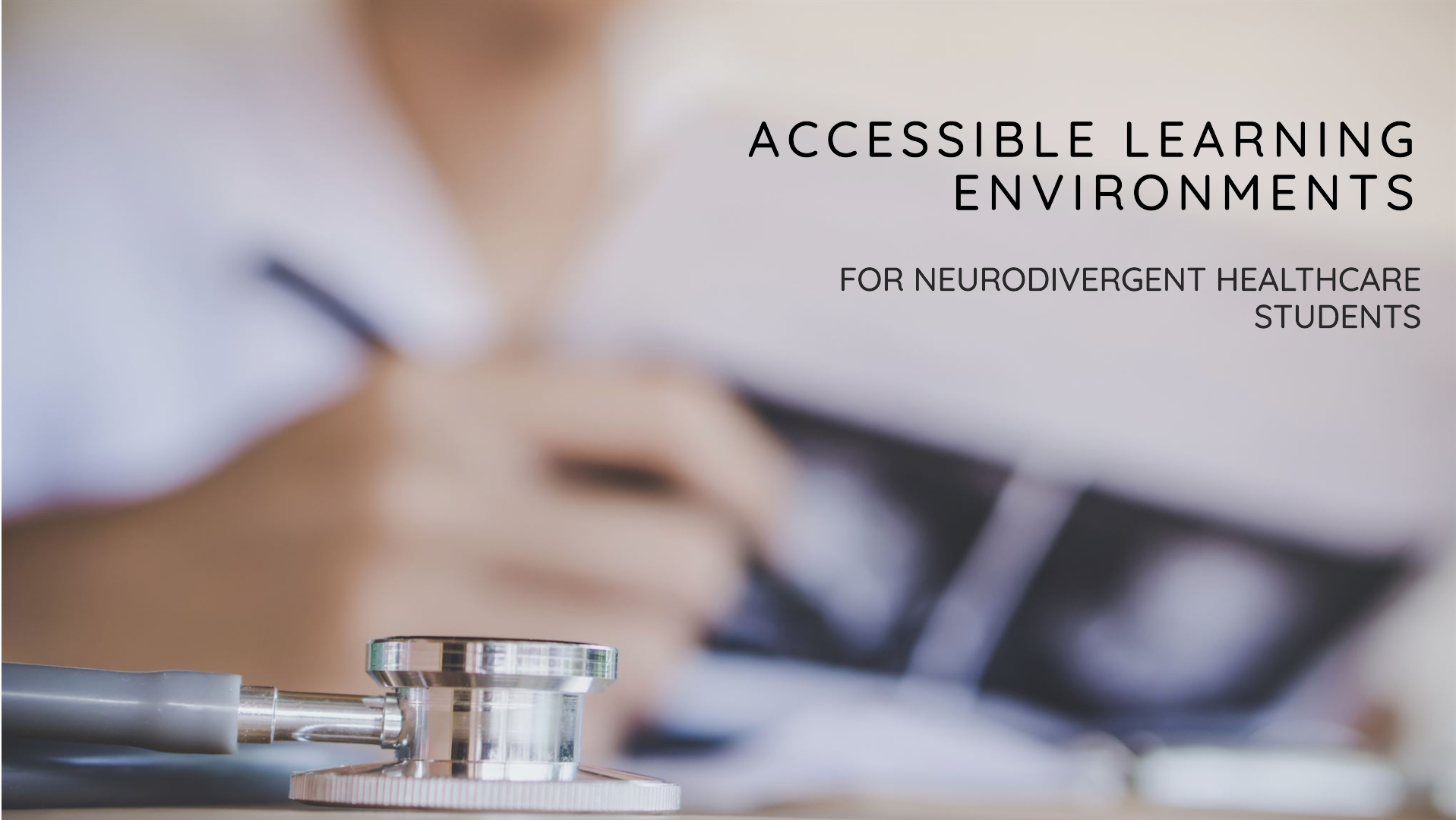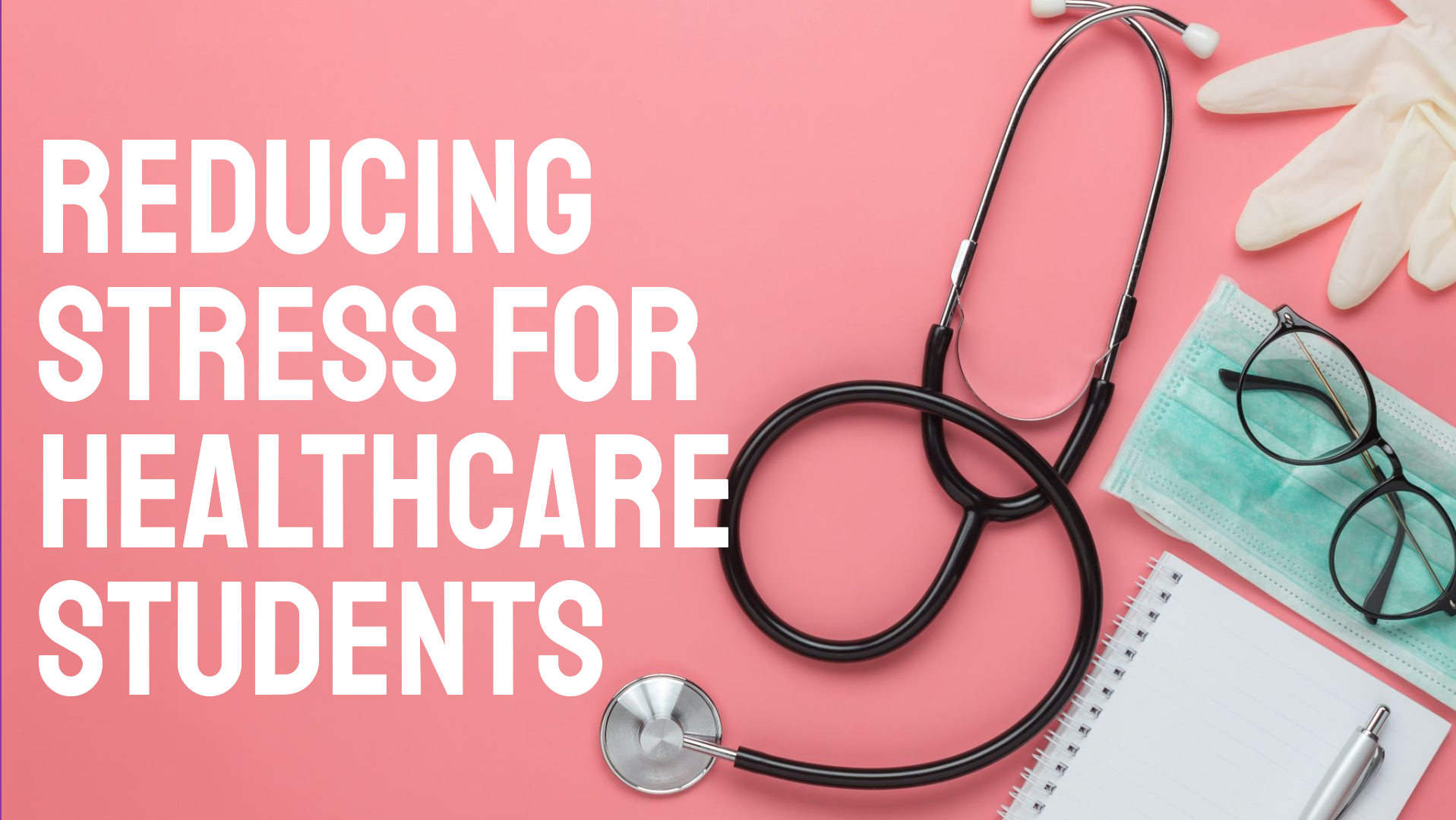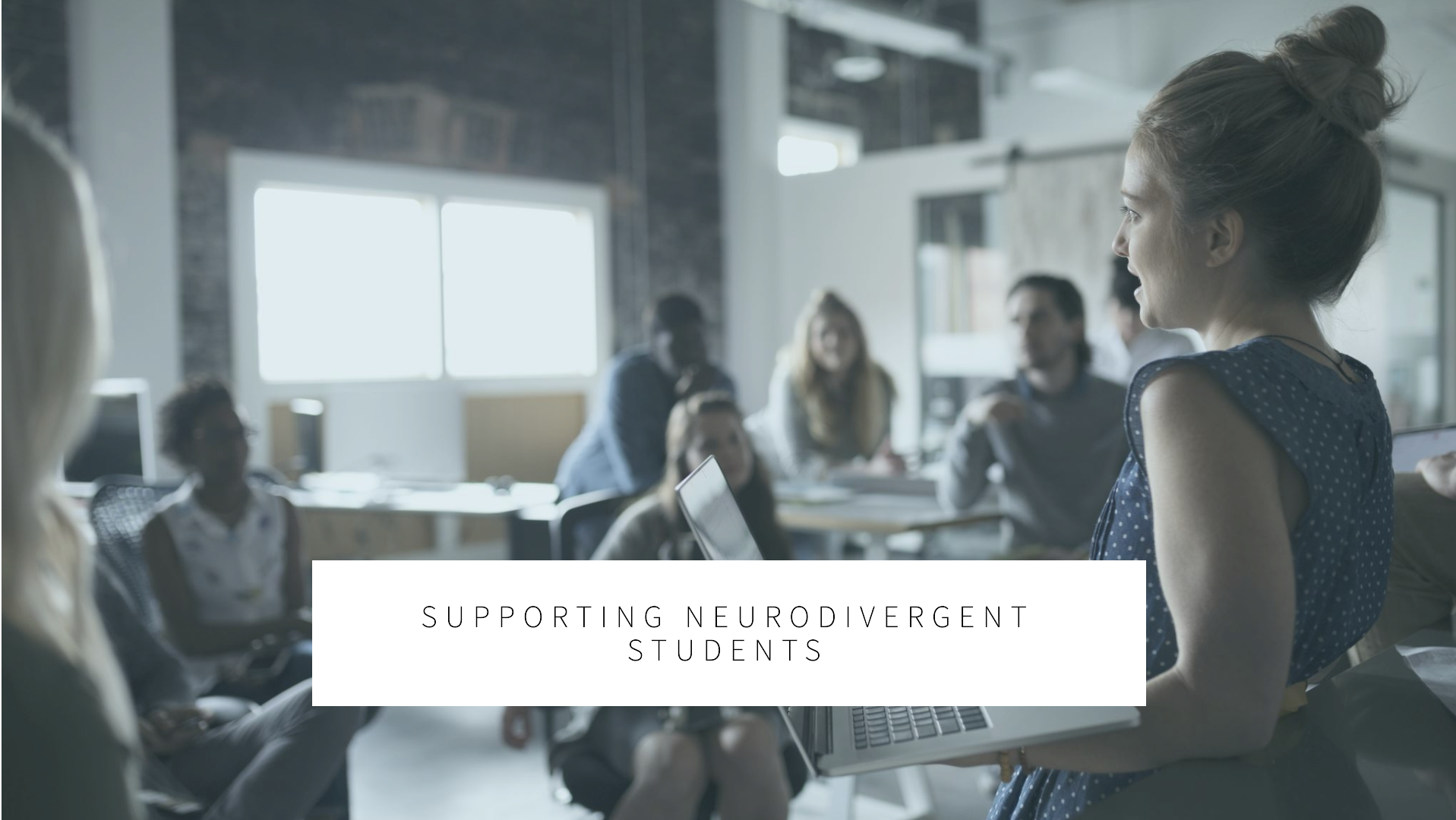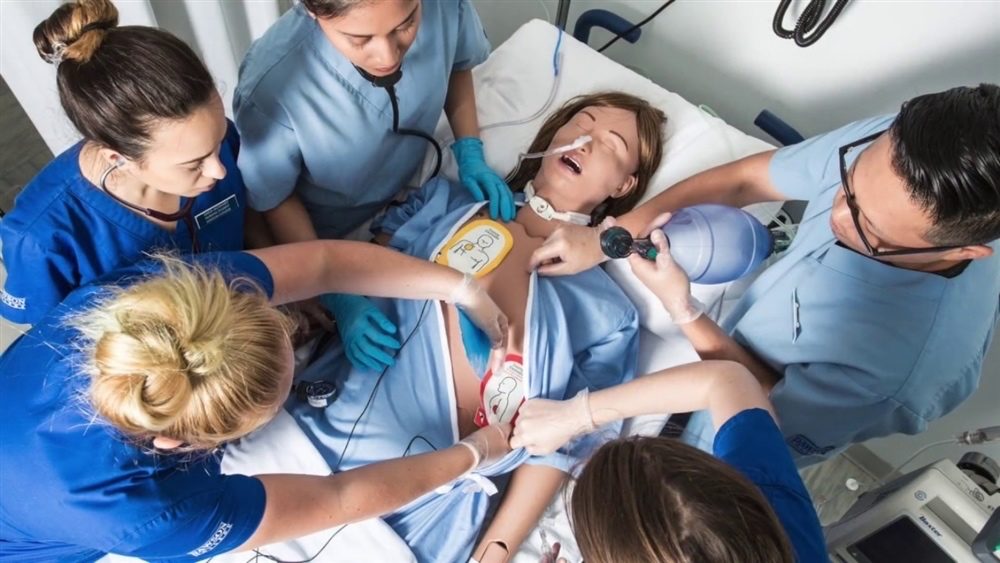Tag: healthcare
-

Real-World Impact: How Paramedic Students Benefit from Simulation Training
Paramedics operate on the frontline of healthcare, often in unpredictable, high-pressure environments where split-second decisions can save lives. Preparing students for these challenges requires more than textbooks and lectures—it demands immersive, hands-on learning experiences. Simulation training has become an essential tool in paramedic education, bridging the gap between theory and practice. This article explores how…
-

Creating Accessible Learning Environments in Healthcare Education for Neurodivergent Students
Healthcare education thrives on diversity, and neurodivergent students—those with Autism, ADHD, Dyslexia, and other neurological differences—bring unique perspectives and strengths to the field. However, traditional educational approaches can inadvertently create barriers that make it difficult for these students to thrive. On this International Day of Persons with Disabilities, let’s explore how healthcare education, particularly simulation-based…
-

Overcoming Barriers to Implementing Simulation-Based Learning in Healthcare Education
Simulation-based learning has revolutionised healthcare education, offering a safe and controlled environment for students to develop clinical skills, improve decision-making, and gain hands-on experience. Despite its benefits, many institutions face significant barriers when trying to implement simulation-based learning. Issues such as high costs, accessibility challenges, and the need for specialised staff training can hinder adoption.…
-

ADHD in Healthcare Education: Turning Challenges into Strengths
Healthcare education is intense, demanding unwavering focus, attention to detail, and the ability to handle high-stress situations. For students with ADHD, these requirements can pose unique challenges, from staying organised to managing time and reducing distractions. Yet, students with ADHD also bring valuable strengths, such as creativity, adaptability, and quick thinking—qualities that, when harnessed effectively,…
-

Supporting Men with ADHD in Healthcare Education: Promoting Success, Mental Health, and Resilience
Healthcare education is demanding for all students, but for those with ADHD, the challenges can be particularly significant. Men with ADHD often face unique pressures in healthcare training, where focus, organisation, and consistent decision-making are essential skills. On this International Men’s Day, let’s discuss strategies to support male healthcare students with ADHD, promoting their mental…
-

How Simulation-Based Learning Can Reduce Stress for Healthcare Students
Healthcare education is undoubtedly one of the most demanding fields of study. With high expectations, intense training, and the weight of future responsibilities, it’s no surprise that healthcare students often experience elevated levels of stress. As these students prepare for careers where quick, accurate decision-making can mean the difference between life and death, the pressure…
-

Supporting Neurodivergent Students in Simulation-Based Learning: Creating Inclusive Healthcare Education
Simulation-based learning is an incredibly powerful tool in healthcare education, offering students a realistic, hands-on environment to practice critical skills. However, for neurodivergent students—those with Autism, ADHD, Dyslexia, and other neurological variations—traditional simulation scenarios can present unique challenges. To foster an inclusive learning environment, it’s essential to adapt simulation-based healthcare training to meet the diverse…
-

Healthcare Simulation
With extensive experience in nursing simulation, major incident response, and military scenarios, I bring a wealth of knowledge to creating realistic and impactful training environments. This page showcases my journey and expertise in healthcare simulation, demonstrating my commitment to excellence in this field. My Journey in Healthcare Simulation From the early stages of my career,…